Main Content
If you would like to add your profile to this page, please use this link: Faculty Research Profile | Office of Research | University of Washington Tacoma

Julia Aguirre
arrow_drop_down_circle
Julia Aguirre
Professor, School of Education
Dr. Aguirre focuses on critical equity studies in mathematics education, teacher education, culturally responsive mathematics pedagogy, and mathematical modeling. Dr. Aguirre is co-author of four books: The Impact of Identity in K-12 Mathematics: Rethinking Equity-Based Practices (2024); Cultivating Mathematical Hearts: Culturally Responsive Mathematics Teaching in Elementary Classrooms (2024); Transforming Mathematics Teacher Education: An Equity-based Approach (2019); and The Impact of Identity in K-8 Mathematics: Rethinking Equity-based Practices (2013).
jaguirre@uw.edu

Lorne Arnold
arrow_drop_down_circle
Lorne Arnold
Assistant Professor, School of Engineering & Technology
I conduct research on numerical modeling of seismically-induced failure in rock slopes. While my primary focus is on analyzing the mechanics of fracture initiation and propagation in rock slopes at a local scale, my ultimate objective is to enhance regional-scale risk models in seismically active regions and areas that are vulnerable to climate change impacts. By developing dependable, physics-based models that inform regional risk analysis, my work can help engineers and policymakers make informed decisions about how to design and maintain resilient infrastructure and keep communities safe.
arnoldl@uw.edu
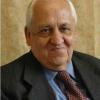
Orlando Baiocchi
arrow_drop_down_circle
Orlando Baiocchi
Professor, School of Engineering & Technology
In collaboration with the University of Paraiba, Brazil and the University of Azores, Portugal, we investigate the harvesting of electrical energy from trees based on the thermoelectric effect. This energy is used to feed sensors that measure environmentally relevant variables like temperature, humidity, and gas concentrations, without use of chemical batteries. These data are then transmitted wirelessly to a central hub and from there to satellites or the Internet. Applications include the prevention of forest fires and the navigation of helicopters in adverse weather conditions.
baiocchi@uw.edu

Katie Baird
arrow_drop_down_circle
Katie Baird
Professor, School of Interdisciplinary Arts & Sciences
Prof. Baird specializes in public economics and public policy. Recent projects include analyses of the financial burden out-of-pocket medical costs place on citizens in different countries, and a cross-national comparison of the incidence of health care spending. She has also published research examining the effect of drop boxes on voting patterns in Washington state. Most recently Prof Baird published a memoir based on her experiences with the village of Cive in Mauritania.
kebaird@uw.edu
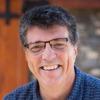
Joel Baker
arrow_drop_down_circle
Joel Baker
Professor, School of Engineering & Technology
Dr. Baker's interests as Director of the UW Puget Sound Institute center about the application of high-quality science to effective environmental policy. His research expertise centers on the transport of organic contaminants in the environment, including the dynamics of contaminant transport in estuaries, and modeling the exposure and transfer of bioaccumulative chemicals in aquatic food webs. He teaches courses in water quality modeling, environmental engineering, and qualitative methods.

Hannah Baughman
arrow_drop_down_circle
Hannah Baughman
Assistant Professor, School of Interdisciplinary Arts & Sciences
The Baughman lab investigates mechanisms of protein function, with an emphasis on understanding protein dynamics, or how proteins move. Intrinsically disordered proteins are a class of proteins which do not fold into stable three-dimensional structures but remain flexible in solution. This conformational flexibility is key to promoting cellular processes such as transcriptional regulation (controlling which genes are turned on and off) and cell signaling. Ongoing work in our lab investigates the NF-kappaB family of proteins, which activate genes involved in inflammation and the immune response. We are investigating how intrinsically disordered regions of NF-kappaB proteins contribute to their structure and biological function.
herb3@uw.edu
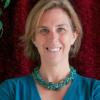
Bonnie J. Becker
arrow_drop_down_circle
Bonnie J. Becker
Associate Professor, School of Interdisciplinary Arts & Sciences
Dr. Becker, a marine ecologist and conservation biologist, specializes in larval shellfish dispersal and fisheries sustainability. She engages with undergraduate students and community partners through the Pacific Northwest Crab Research Group, focused on supporting tribal and state Dungeness crab fisheries management in the Salish Sea. Her students also collaborate with the Washington State Department of Natural Resources, studying market squid migration and feeding habits in Puget Sound.As Associate Vice Chancellor for Student Success at UW Tacoma, Dr. Becker merges her research and academic leadership experience to explore best practices in student success. Currently, she works with a multidisciplinary and cross-institutional team in exploring high-impact practices (HIPs). This work aims to foster access, equity, and equitable post-graduation outcomes while nurturing students' sense of purpose and belonging.
bjbecker@uw.edu
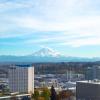
Kristin Kawena Begay
arrow_drop_down_circle
Kristin Kawena Begay
Assistant Professor, School of Education
I have both clinical and research experience related to the field of school psychology and learning. I am passionate about bringing psychological services into school settings, with a specific focus on best practices for appropriate identification services that lead to effective interventions for children from historically underserved populations. My research interests focus on culturally responsive assessment practices for all students, with a particular focus on identifying autism.
Begayka@uw.edu
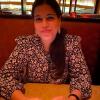
Anindita Bhattacharya
arrow_drop_down_circle
Anindita Bhattacharya
Assistant Professor, School of Social Work & Criminal Justice
My research integrates intersectional feminist perspectives to examine structural underpinnings of interpersonal violence and improve services through culturally and contextually adapted interventions. My current research program (funded by the Royalty Research Fund at the University of Washington) examines longitudinal help-seeking pathways among survivors of intimate partner violence to identify gaps in services. This project invites survivors’ experiences seeking help over time and aims to identify focal points for improvement. The longitudinal orientation of this work advances theory around how stages of help-seeking operate across time for women from minoritized communities and responds to the need for more survivor-centered research and practice.
ab4050@uw.edu
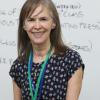
Nicole Blair
arrow_drop_down_circle
Nicole Blair
Teaching Professor, School of Interdisciplinary Arts & Sciences
My research involves a number of topics: modern British fiction (Virginia Woolf and the Bloomsbury Group), American poetry by women (i.e. Anne Bradstreet, Phillis Wheatley, Emily Dickinson), Americana and other genres of mostly American music (Lucinda Williams, for example), women's issues (equality in the workplace, etc). I have published two academic books and presented at numerous conferences. I am also interested in pedagogy, and have presented and published in this area as well.
nblair@uw.edu
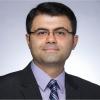
Alireza Boloori
arrow_drop_down_circle
Alireza Boloori
Assistant Professor, Milgard School of Business
Healthcare analytics, operations, and policy
Opioid epidemic
Telehealth utilization
aboloori@uw.edu

Wei Cai
arrow_drop_down_circle
Wei Cai
Assistant Professor, School of Engineering and Technology
Dr. Wei Cai holds a Ph.D. in Electrical and Computer Engineering from The University of British Columbia (2016), an M.Sc. in Electrical Engineering and Computer Science from Seoul National University (2011), and a B.Eng. in Software Engineering from Xiamen University (2008). Prior to joining UW, Dr. Cai was an Assistant Professor of Electrical and Computer Engineering at The Chinese University of Hong Kong, Shenzhen, China. He has also conducted research visits at Academia Sinica (Taipei), The Hong Kong Polytechnic University, and the National Institute of Informatics (Tokyo).
Dr. Cai has co-authored over 100 peer-reviewed journal and conference papers and has received six Best Paper Awards. His research focuses on decentralized computing, with emphasis on mechanism design, social computing, multimedia, and applications. He was named the World's Top 2% Scientist Single Year 2022 and 2023 by Stanford/Elsevier Scientist Ranking. Dr. Cai serves as an Associate Editor for ACM Transactions on Multimedia Computing, Communications, and Applications (TOMM), IEEE Transactions on Computational Social Systems (TCSS), and previously for IEEE Transactions on Cloud Computing (TCC). He is a Steering Committee member for ACM NOSSDAV, where he served as TPC co-chair in 2023, and has been an Area Chair for ACM MM since 2023. He is a Senior Member of IEEE and a member of ACM.
Dr. Cai is now leading the Decentralized Computing Laboratory. Please visit the lab site for more research updates at https://sites.uw.edu/weicaics
weicaics@uw.edu
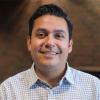
Rubén Casas
arrow_drop_down_circle
Rubén Casas
Associate Professor, School of Interdisciplinary Arts & Sciences
Studies rhetoric within urban contexts, in particular public space. Emphasizes the ways cities are transformed through everyday activities and social action, especially that of migrants and others who are marginalized by and through official planning and development paradigms.
rcasas@uw.edu
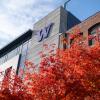
Leighann Chaffee
arrow_drop_down_circle
Leighann Chaffee
Associate Teaching Professor, School of Interdisciplinary Arts & Sciences
I study the complex determinants of food choice and decision making, including attitudes and preferences. My current research is influenced by my training in neuroscience and ingestive behavior. In my lab, student researcher pose hypotheses around the roles of self-compassion, cognitive load, implicit preferences, reward processes, weight stigma, and other phenomena. Our broad goal is to create a more inclusive perspective on eating behavior, to better understand why we think the way we do about food, and the biopsychosocial influences on our daily eating decisions.
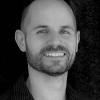
Edward A. Chamberlain
arrow_drop_down_circle
Edward A. Chamberlain
Associate Professor, School of Interdisciplinary Arts & Sciences
I am an interdisciplinary researcher at the University of Washington. In my research, I largely build upon the approaches of Ethnic Studies, Food Studies, and Gender Studies. This work ultimately connects the creative efforts of a diverse set of people and places. Likewise, this research speaks to the intersections of cultural experience across creative expression, exploring issues of equity, inclusion, and belonging. More recently, I've examined how performance, visual art and writing depict several communities across the United States and beyond.
ec10@uw.edu

Sarah A. Chavez
arrow_drop_down_circle
Sarah A. Chavez
Assistant Teaching Professor, School of Interdisciplinary Arts and Sciences
Dr. Chavez’s research and creative and critical writing focuses on the intersectional experiences of identity performance, with a particular emphasis on race/ethnicity, gender, and socio-economic status. Recently published work centers states of belonging for mestizaje characters who also embody queerness, and educational diversity. Her new research/writing project, tentatively titled, In The Face of Mourning: Grief/grieving and Shifts in Cultura (letters y lyrics), examines the way intersectional identities affect performances of grief and mourning, particularly in Mexican American/Chicanx/Latinx communities and mixed family structures.

Tawanda Chivese
arrow_drop_down_circle
Tawanda Chivese
Assistant Professor, School of Interdisciplinary Arts & Sciences
I am an epidemiologist, with multidisciplinary research interests, including gestational diabetes mellitus (GDM), HIV, gastro-intestinal health, and evidence synthesis. My main interest is GDM, and I have carried out studies mapping its prevalence, risk factors, diagnosis, management and consequences. I am especially interested in developing and evaluating interventions for the reduction of postpartum cardio-metabolic disease in women who have gestational diabetes and in their exposed children. Women from low-income settings and marginalized groups often face structural barriers which impede their ability to carry out lifestyle change interventions that could potentially help them in reducing their risk of postpartum diabetes and heart disease after a pregnancy complicated by gestational diabetes. I am interested in low-cost interventions for these women and best ways to deliver them.
tchivese@uw.edu
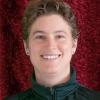
EC Cline
arrow_drop_down_circle
EC Cline
Associate Professor, School of Interdisciplinary Arts & Sciences
Currently my main focus is on inclusive excellence and broadening participation in STEM, and I am the Director of the ACCESS in STEM program and lead a research project examining self-efficacy, sense of belonging, and motivation in STEM.
ecline@uw.edu

Kim Davenport
arrow_drop_down_circle
Kim Davenport
Lecturer, School of Interdisciplinary Arts & Sciences
Local history, with a focus on the musical and artistic history of Tacoma.
Pedagogy of non-major music curriculum, with a focus on developing anti-racist teaching strategies.
kimmd@uw.edu
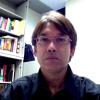
Dawn Debasis
arrow_drop_down_circle
Dawn Debasis
Professor, School of Engineering & Technology
CMOS Radio Frequency Integrated Circuits (RFIC) development for new generation of highly integrated multifunctional devices, circuits and systems which promises a wide range of applications in science, engineering and medicine.
ddawn@uw.edu
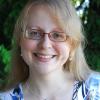
Martine De Cock
arrow_drop_down_circle
Martine De Cock
Professor, School of Engineering & Technology
Martine De Cock holds a M.Sc. and a Ph.D. degree in Computer Science from Ghent University. She is a Professor at the School of Engineering and Technology, University of Washington Tacoma, as well as a guest professor at Ghent University. She has over 190 peer reviewed publications in international journals and conferences on artificial intelligence, data mining, machine learning, information retrieval, web intelligence and logic programming. Her current research interests are privacy preserving machine learning, cybersecurity, and data analytics to improve the quality of healthcare.
mdecock@uw.edu

Sonia De La Cruz
arrow_drop_down_circle
Sonia De La Cruz
Assistant Professor, School of Interdisciplinary Arts & Sciences
The Storytelling project is a digital humanities project that aims to document and archive the stories and experiences of our broader Tacoma and South Sound community, and is particularly focused on voices from below, or those from traditionally marginalized communities, such as to those connected to BIPOC, LGBTQIA+, immigration, disability, or other social identities and their intersections. This work can support research and integrated works that can enhance transformational pedagogies through culturally-relevant community engaged practices, and a social justice orientation to foment a deeper understanding of our local communities by fostering a space for listening, dialogue, and reflection through creative practice.
soniadlc@uw.edu

Yonn Dierwechter
arrow_drop_down_circle
Yonn Dierwechter
Professor, School of Urban Studies
I work on the political and economic geographies of metropolitan development and city-regional spatial planning policies in North America, Europe and South Africa. This includes empirical investigations of, inter alia, smart growth plans, urban climate action, the recent rise of cities as green International actors, and the equity challenges that local sustainability regimes pose for working class livelihoods and green industrial transitions.
yonn@uw.edu

Heather Dillon
arrow_drop_down_circle
Heather Dillon
Professor, School of Engineering & Technology
My research team is working on renewable energy systems, solid-state lighting, energy efficiency in buildings, fundamental heat transfer studies, and engineering education. I often work with the Pacific Northwest National Laboratory working on both energy efficiency and renewable energy systems. I am deeply committed to supporting undergraduate research students and publish with them whenever possible.
hedillon@uw.edu

Rachel Endo
arrow_drop_down_circle
Rachel Endo
Professor, School of Education
My primary research interests include anti-racist approaches to organizational development (including HRM); Asian/American education; bilingual education; immigrant and refugee education; the role of Ethnic Studies in PK-12 and teacher education; transnational studies, and urban education.
rendo@uw.edu

Tabitha Espina
arrow_drop_down_circle
Tabitha Espina
Assistant Professor, School of Interdisciplinary Arts & Sciences
Decolonial Rhetorics and Pedagogies, Pluriversal Literacies, Asian Pacific American Experiences, Public Humanities
tespina@uw.edu
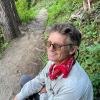
Robin Evans-Agnew
arrow_drop_down_circle
Robin Evans-Agnew
Professor, School of Nursing & Healthcare Leadership
I focus on critical theory and participatory approaches for health promotion and advocacy, including the application of photovoice (a visual research methodology) for advancing environmental justice. I facilitated an 8-year community based participatory research project with Latinas and their children, mostly recently in a youth photovoice project on climate justice in nursing, supported by UW Earthlab. I have written about and innovated research methods, particularly photovoice, and the application of critical discourse analysis in health equity research. I have applied my research skills in photovoice to develop new tools for community assessment, planning, and evaluation, and community based tools for evaluating asthma friendly daycares.
robagnew@uw.edu
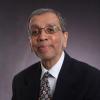
Ehsan H. Feroz
arrow_drop_down_circle
Ehsan H. Feroz
Professor, Milgard School of Business
My main research interests are in institutional governance, corporate and non-profit financial governance, governance of the financial regulatory institutions, and the US Securities and Exchange Commission's regulatory enforcement actions. My published work (http://ssrn.com/author=16772) has influenced both academic research in terms of citations (www.adscientificindex.com) as well as public policy.
ehf2@uw.edu

Laura Feuerborn
arrow_drop_down_circle
Laura Feuerborn
Professor, School of Education
I study systems change in schools as related to social emotional learning (SEL) and Positive Behavior Intervention and Supports (PBIS). I have created staff and student survey tools for the purposes of obtaining their voices and engaging them in planning, implementation, and evaluation decisions.
feuerl@uw.edu

Alison Gardell
arrow_drop_down_circle
Alison Gardell
Assistant Professor, School of Interdisciplinary Arts & Sciences
Ongoing research in the Gardell Lab centers on studying the environmental stress response of aquatic animals. We are particularly interested in understanding molecular and physiological mechanisms that contribute to tolerance and resiliency in some species, but not in others. Our three major research projects are: 1) development of an immortalized cell line in a marine tunicate, 2) arsenic impacts on freshwater lake microbiomes, and 3) biomarker development using blue mussels as indicators of coastal ecosystem health. Our work is highly integrative, often scaling across multiple levels of biological organization, and harnesses collaborative efforts with internal and external partners.
agardell@uw.edu
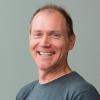
James E. Gawel
arrow_drop_down_circle
James E. Gawel
Professor, School of Interdisciplinary Arts & Sciences
The overall theme of my scholarship is examining the impact of anthropogenic and natural disturbance forces on aquatic and terrestrial ecosystems, and the resulting implications for resource management and mitigation. I have developed multiple interrelated research areas within this larger theme: (a) the physical and biogeochemical factors that affect metal bioavailability and toxicity in aquatic systems; (b) the impact of metal pollutants on forest health; (c) nutrient cycling, invasive species dynamics, and ecological change in lakes; and (d) water resource management to address anthropogenic degradation. I have shaped my scholarship around UW Tacoma's urban serving and community engaged mission, reaching a broader audience through applied research, student and community involvement, and disseminating results through alternative venues that increase public accessibility and research translation.
jimgawel@uw.edu
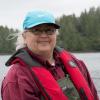
Cheryl Greengrove
arrow_drop_down_circle
Cheryl Greengrove
Associate Professor, School of Interdisciplinary Arts & Sciences
I am a physical oceanographer currently working with biological, chemical and geological oceanographers studying Harmful Algal Blooms in Puget Sound and estuarine processes in Barkley and Clayoquot Sounds on the west coast of Vancouver Island. I also work on STEM based pedagogical studies that examine the impact of incorporating real world data and applied, hands-on learning and field activities on student learning. My favorite activity is taking students in the field and involving them in hands-on research.
cgreen@uw.edu
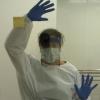
Anna Maria Groat Carmona
arrow_drop_down_circle
Anna Maria Groat Carmona
Assistant Professor, School of Interdisciplinary Arts & Sciences
Malaria is caused by eukaryotic parasites of the genus Plasmodium, and constitutes the most deadly parasitic infection in the world with 350 – 500 million clinical episodes occurring annually worldwide. Plasmodium parasites cycle between their Anopheles mosquito vector and its mammalian host where they undergo extensive developmental transformations. The liver-stage is an attractive interventional target since few parasites are present in the host, clinical symptoms are absent and it results in a massive parasite amplification event, releasing tens of thousands of blood-stage parasites that will go on to cause symptomatic disease. My research lab examines the morphological changes that occur on the parasite plasma membrane (PPM) during the mosquito- to liver-stage transition, providing a more comprehensive understanding of the infection-related proteins that initiate liver-stage development.
groat@uw.edu
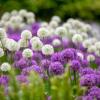
Emese Hadnagy
arrow_drop_down_circle
Emese Hadnagy
Associate Professor, School of Engineering & Technology
Dr. Hadnagy has a broad interest in environmental pollution prevention and hazard mitigation in water and related matrices and the common thread of her research is to understand the physicochemical processes that control the fate, transport, and remediation of environmental contaminants. Dr. Hadnagy also has an interest in real-time surface water quality monitoring. Her research is a unique blend of experimental and data/modeling work and she has experience in studying both man-made and natural systems. In addition, Dr. Hadnagy is also involved in engineering education research.
ehadnagy@uw.edu

Katie Haerling
arrow_drop_down_circle
Katie Haerling
Professor, School of Nursing & Healthcare Leadership
nursing education; healthcare education; simulation; healthcare simulation; nursing leadership
kadamson@uw.edu

Vern Harner
arrow_drop_down_circle
Vern Harner
Assistant Professor, School of Social Work & Criminal Justice
Vern Harner is an assistant professor in the UWT School of Social Work & Criminal Justice. As a community-embedded activist, organizer, and scholar, their work aims to amplify ongoing efforts within trans and multiply marginalized communities. Employing both quantitative and qualitative methods, Dr. Harner’s current work focuses on intracommunity support, engagement with social and health services, and quality of life of trans communities. Dr. Harner is affiliate faculty at the Harborview Injury & Prevention Research Center and Co-Chair of the LGBTQ Caucus of Faculty & Students in Social Work.
vharner@uw.edu

Matthew Harvey
arrow_drop_down_circle
Matthew Harvey
Assistant Professor, School of Interdisciplinary Arts & Sciences
I am a public economist with a particular interest in institutions and crime. My research uses both experimental and applied micro techniques to explore the effect of micro-level institutions on trust, social engagement, crime, and race. I examine how policy and regime changes in sub-national institutions affect individuals' incentives to engage in improper behavior at the margin. I am further interested in the relationship between individuals and institutions: in particular the ways individuals respond to institutions after new information. While law enforcement is my main institution of focus, I have also focused on local governments and employer employee interactions.
matt1307@uw.edu
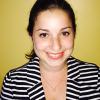
Rachel M. Hershberg
arrow_drop_down_circle
Rachel M. Hershberg
Associate Professor, School of Interdisciplinary Arts & Sciences
I primarily explore positive youth development and critical consciousness development in adolescents across a range of contexts. In one line of work I examine how adolescents from different sociodemographic backgrounds think about social injustices and become engaged in actions to address them. In another I focus on Central American adolescents’ contributions to their transnational and mixed-status families and how families manage to experience well-being despite these challenging systems. I engage in community-based and participatory research methodologies and most of my scholarship is mixed-methods or qualitative.
rmhersh@uw.edu

Lisa M. Hoffman
arrow_drop_down_circle
Lisa M. Hoffman
Professor, School of Urban Studies
She defines her interdisciplinary and yet anthropological work as anthropology of the urban. Broadly speaking, her scholarship has focused on questions of power, governing and social change, with a particular interest in subjectivity and its intersections with spatiality. Geographically, the majority of her work has been located in urban China, with an extension of these organizing questions into other realms in the United States, such as homelessness, ethnic identity, and the molecularization of life.
hoffmanl@uw.edu
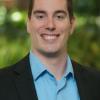
Arthur Jago
arrow_drop_down_circle
Arthur Jago
Assistant Professor, Milgard School of Business
Arthur primarily researches automation and the psychology of technology, with a particular emphasis on how new technologies are changing people's experiences in business and society.
ajago@uw.edu

Rupinder P. Jindal
arrow_drop_down_circle
Rupinder P. Jindal
Associate Professor, Milgard School of Business
Interested in studying a wide variety of questions related to issues of co-ordination and control in channels of distribution and sales forces; strategic issues in retailing; issues of construct measurement; issues of public policy in healthcare; and ways of enhancing the value proposition of products and services.
jindalrp@uw.edu

Maureen C. Kennedy
arrow_drop_down_circle
Maureen C. Kennedy
Associate Professor, School of Interdisciplinary Arts & Sciences
Maureen's research focuses on developing innovative quantitative tools that improve ecological theory development and environmental decision-making. Her current area of research is in fire ecology and forest management. She collaborates with scientists in the US Forest Service, Washington Department of Natural Resources, and faculty in institutions across the Western US to advance our understanding of wildfire behavior and spread under variable management and climate scenarios.
mkenn@uw.edu

Sana Khalil
arrow_drop_down_circle
Sana Khalil
Assistant Professor, School of Interdisciplinary Arts & Sciences
I am an assistant professor of economics at the University of Washington Tacoma. I obtained my doctoral degree in economics at the University of Massachusetts Amherst in September 2022, where I was a US Fulbright doctoral fellow and received the 2018 Solomon Barkin Award for best research on improving the conditions of the working class.
My research interests are in applied microeconomics and econometrics, centered on exploring social and economic inequalities. In my research, I integrate experimental and quasi-experimental techniques with qualitative surveys to explore issues in labor economics, behavioral economics, environmental resource management, and gender and development. One of my current studies examines the impact of intersecting identities such as race and sexual orientation on hiring outcomes.
sanakhl@uw.edu

JaeRan Kim
arrow_drop_down_circle
JaeRan Kim
Associate Professor, School of Social Work & Criminal Justice
JaeRan Kim, Ph.D., MSW, (she/hers) is an Associate Professor in the School of Social Work and Criminal Justice. JaeRan's research is focused on the wellbeing of adoptees, exploring disability, race, and transnational experiences for adoptees. Her research includes the racial, ethnic, and adoption socialization practices of Korean American adoptee parents, the use of out-of-home care (residential treatment, group homes and foster care) for adoptees, and adult intercountry adoptees with adoption displacement experiences. JaeRan's research also explores the preparation and training of professional social workers and child welfare workers. As a public scholar, JaeRan is passionate about engaging in community-based projects.
kimjr@uw.edu

Kelly Kim
arrow_drop_down_circle
Kelly Kim
Assistant Professor, School of Interdisciplinary Arts & Sciences
My primary research interests involve organic synthesis and methodology, with an emphasis on diversification of complex molecular scaffolds. By creating libraries of compounds that share a core framework but differ in structural side groups, we can work with collaborating researchers to assess how varying specific structural components affects the biological activity of the compounds against targets of interest. Research projects in my group include the synthesis and characterization of biologically relevant complex organic molecules and the development of organic reaction methodologies for synthetic applications.
kekim2@uw.edu
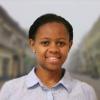
Angela Kitali
arrow_drop_down_circle
Angela Kitali
Assistant Professor, School of Engineering & Technology
My research focuses on improving highway safety, promoting transportation equity, and optimizing traffic operations using data, statistics, and machine-learning approaches. With over seven years of experience in research, I have contributed to over twelve research projects funded by the Florida Department of Transportation, the United States Department of Transportation, the AAA Foundation for Traffic Safety, the Washington State Department of Transportation, and the Ohio Department of Transportation. I have established an outstanding interdisciplinary research portfolio marked by successful collaborations with experts from various fields, including computer science, statistics, psychology, and sociology. I aspire to establish a successful transportation engineering research program that produces high-quality research, involves undergraduate students in research, and promotes diversity and inclusivity by collaborating with researchers from diverse backgrounds.
akitali@uw.edu

Christopher B. Knaus
arrow_drop_down_circle
Christopher B. Knaus
Professor, School of Education
Global scholar focused on applied critical race theory, decolonizing African higher education, disrupting anti-Black racism in US school and higher education systems, and dismantling the infrastructures of whiteness in educational systems.
educate@uw.edu
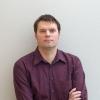
Edward P. Kolodziej
arrow_drop_down_circle
Edward P. Kolodziej
Professor, School of Interdisciplinary Arts & Sciences
My interests include water quality and contaminant fate in natural and engineered systems, focusing on interdisciplinary approaches to complex environmental issues affecting water and ecosystem health. My research group works to characterize and control non-point source pollution, understand attenuation mechanisms in natural systems, and optimize engineered systems for trace contaminant removal. We do lots of work on the water quality impacts of roadway runoff and tire rubber chemicals, seeking to improve urban water quality while insuring we control toxic chemicals at the source. Our research has been published in Science and other high impact journals and widely featured in news media such as The New York Times, LA Times, CNN, The Guardian, Nature, Scientific American, U.S. News and World Report, podcasts, documentaries, and many others.
koloj@uw.edu

Tom Koontz
arrow_drop_down_circle
Tom Koontz
Professor, School of Interdisciplinary Arts & Sciences
Climate change, species recovery, and water quality are some of the many issues confronting us here in the Pacific Northwest and around the world. As an environmental policy researcher, I study how to address environmental challenges through different governance arrangements. My current focus is on the Puget Sound, specifically how government-stakeholder partnerships incorporate science and other kinds of information into ecosystem restoration. This includes collaboration among many stakeholders in government agencies, Tribes, interest groups, industry, and other community members, who bring diverse knowledge, experiences, and perspectives. I have researched such collaborative water management in many settings including New Zealand, Germany, and Ohio. My research at UWT often includes students engaging in studies that involve implementing surveys, analyzing documents, and conducting interviews.
koontz31@uw.edu
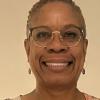
Sharon Laing
arrow_drop_down_circle
Sharon Laing
Associate Professor, School of Nursing & Healthcare Leadership
Supporting healthcare services delivery for patients in safety-net healthcare systems and empowering the healthcare providers of the patients.
laings@uw.edu

Jingyi Li
arrow_drop_down_circle
Jingyi Li
Assistant Professor, School of Nursing & Healthcare Leadership
My primary research focuses on translating evidence-based, non-pharmacological interventions designed to improve the care and quality of life for older adults with chronic illnesses and their family caregivers. I am currently working on a couple of projects: (1) culturally adapting and pilot-testing chatbot-delivered psychotherapy for Chinese American families caring for older adults with chronic conditions, and (2) promoting health equity through cultural adaptation of Alzheimer's Cafe in Chinese American communities.
jingyi89@uw.edu

Jonah Li
arrow_drop_down_circle
Jonah Li
Assistant Professor, School of Interdisciplinary Arts & Sciences
My research program seeks to promote resilient and optimal psychological experiences among diverse and minority groups multiculturally. To this end, my three lines of research include: (a) advancing the conceptual clarity of relevant constructs and their associations with mental health outcomes, (b) developing psychometrically sound measures of those constructs, and (c) establishing, evaluating, and promoting innovative and efficacious interventions to achieving resilient and optimal psychological experiences.
jonahli@uw.edu
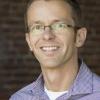
Wes Lloyd
arrow_drop_down_circle
Wes Lloyd
Associate Professor, School of Engineering & Technology
My research broadly spans cloud computing, distributed systems, and software engineering. I engage in research in serverless computing, cloud computing delivery models including function-as-a-service, infrastructure-as-a-service, container-as-a-service, and others, containerization, virtualization, performance profiling, analysis, and modeling, and autonomous deployment and management of cloud applications and infrastructure.
wlloyd@uw.edu
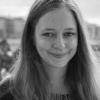
Anna Lovász
arrow_drop_down_circle
Anna Lovász
Assistant Professor, School of Interdisciplinary Arts & Sciences
I research gender inequalities in the labor market, and governmental and institutional policies that can decrease them. I study the impact of family policies, such as parental leave, subsidized childcare, and flexible work forms on gender gaps in employment and earnings, relying on the analysis of large administrative datasets and cross-country comparisons. I also run behavioral experiments aimed at measuring the impact of supervisory communication - performance feedback and subjective feedback - on individual motivation, effort, and performance. These rely on online games with randomized treatment. I also work on further labor market issues, such as the impact of ageing, the impact of preschool on cognitive skills, occupational segregation, and firm productivity.
plovi@uw.edu
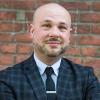
Eric Madfis
arrow_drop_down_circle
Eric Madfis
Professor, School of Social Work & Criminal Justice
Dr. Madfis is a qualitative sociologist and critical criminologist whose main areas of research focus on the causes and prevention of school violence, hate crime, and mass shootings. He is interested in theoretical criminology and the causes of violent behavior, emergent forms of violence prevention policy and practice (such as harm reduction, behavioral threat assessment, conflict resolution, and restorative and transformative justice) and the sociology of deviance and social control more generally. He has also published scholarship on tattooing, masculinities, white supremacist organizations, and school punishment. His recent books include How to Stop School Rampage Killing: Lessons from Averted Mass Shootings and Bombings and All-American Massacre: The Tragic Role of American Culture and Society in Mass Shootings.
emadfis@uw.edu

Chris Marriott
arrow_drop_down_circle
Chris Marriott
Associate Teaching Professor, School of Engineering & Technology
I do artificial life research focused on the creation of agent-based models for the study of biological and social systems. Most of my models employ evolutionary algorithms and my primary research interest is social learning and cultural evolution. For this reason I do research on eusocial insects, primarily ants, as well as early humans.
cmarriot@uw.edu

Julie E. Masura
arrow_drop_down_circle
Julie E. Masura
Teaching Professor, School of Interdisciplinary Arts & Sciences
My research primarily focuses on environmental issues involving the estuarine environment. My primary focus is exploring the presence and distribution of the harmful algal organism Alexandrium catenella. This 30-40 micrometer dinoflagellate is a phytoplankton that creates saxitoxin, which can bioaccumulate in filter-feeding organisms. This toxin is known to potentially cause paralytic shellfish poisoning in consuming mammals, to include humans. This work involves mapping locations of dormant cysts to inform stakeholders of a potential threat. This seamlessly integrates with my sedimentological training connecting environmental conditions with sediment characteristics of grain-size and total organic content. While conducting this research, contaminants now identified as microplastics were observed and now compliments my research agenda. This work is completed in partnership with Cheryl Greengrove and decades of undergraduate research students.
jmasura@uw.edu
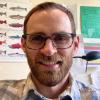
Erik McDonald
arrow_drop_down_circle
Erik McDonald
Associate Teaching Professor, School of Interdisciplinary Arts & Sciences
Erik is a teacher who enjoys using high-impact practices like community engagement and undergraduate research to help support the growth of his students. He currently leads a coho pre-spawn mortality monitoring project at Swan Creek (Puyallup, WA) every fall. This project connects local middle school and UW Tacoma students in a hands-on setting that teaches how science is used to address concerns in our society.
emcdonal@uw.edu
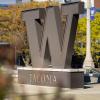
Cassie Miura
arrow_drop_down_circle
Cassie Miura
Associate Teaching Professor, School of Interdisciplinary Arts & Sciences
My research and teaching interests include affect theory, rhetoric and composition, Asian American studies, and premodern literature.
miurac@uw.edu
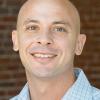
Marc Nahmani
arrow_drop_down_circle
Marc Nahmani
Associate Professor, School of Interdisciplinary Arts & Sciences
The Nahmani lab works to understand how the nanoscale structure of neuronal synapses informs their function across development and during periods of plasticity, and how inappropriate modifications of these structures can lead to disease states. Our lab uses 3D electron microscopy, live functional imaging, and super resolution microscopy techniques.
mnahmani@uw.edu
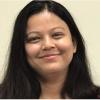
Deveeshree Nayak
arrow_drop_down_circle
Deveeshree Nayak
Assistant Teaching Professor, School of Engineering & Technology
Research Interest: Cybersecurity and Privacy Engineering
Cybersecurity research is a rapidly growing field as the threat of cyberattacks continues to grow. There are many opportunities for those with the skills and knowledge to pursue a career in this field. In Cybersecurity, I study different research methods, techniques, and technologies to protect computer systems, networks, and data from unauthorized access, use, disclosure, disruption, modification, or destruction. In my research work, I develop new ways to secure computer systems and networks and thwart cybercriminals' efforts. I also collaborate with government, private, and non-profit organizations to educate the public about cybersecurity risks and best practices.
dnayak@uw.edu

Randy Nichols
arrow_drop_down_circle
Randy Nichols
Associate Professor, School of Interdisciplinary Arts & Sciences
My work focuses on the critical political economy of video games. I have published three books, The Video Game Business (2014), Inside the Video Game Industry: Game Developers Talk About the Business of Play (2016), and Political Economy of Media Industries: Global Transformations and Challenges (2019) as well as various articles and book chapters analyzing the interplay of the video games industry with other media industries and the implications of video games on cultural and creative industries policy.
rjnic@uw.edu

Sushil K. Oswal
arrow_drop_down_circle
Sushil K. Oswal
Professor, School of Interdisciplinary Arts & Sciences
I am a researcher in the areas of human computer interaction (HCI) and human centered design seeking partners from computing and medicine fields. Employing quantitative and qualitative methods, my current studies in medicine center around healthcare accessibility issues for disabled patients, particularly those with sensory disabilities; accessibility of home-use medical devices; and information and communication design barriers in telemedicine and telehealth portals. I also have two other disability-focused HCI studies in incubator stage with the first year of data collection pilots completed. The first one is on emergency preparedness in communication and information access in the context of climate change disasters in the U.S. West with a focus on wild fires, droughts, and flashfloods and the second relates to transportation challenges in emergency evacuation situations.
oswal@uw.edu

Yixuan Pan
arrow_drop_down_circle
Yixuan Pan
Assistant Professor, School of Interdisciplinary Arts & Sciences
I believe language forms a community, and it's the community that keeps art alive. By dislocating language from its context and form, my work questions the linguistic structures people learn and unlearn. My practice employs various modes of presentation such as digital mixed media, performance, installation, choral conducting, urban walking, poetry composing, swimming pool exercising, lollipop casting, music therapy operating, broken glass foraging and recording, window cleaning, love letter whispering, and so on. Through this anti-disciplinary approach, my research and teaching work reimagines the influence of Western hegemony on global visual culture.
ypan516@uw.edu

Luke Perone
arrow_drop_down_circle
Luke Perone
Associate Teaching Professor, School of Interdisciplinary Arts & Sciences
My research, teaching, and activism include the power of imaginative play, improvisational theater, performance activism, social therapeutics, humanitarian clowning, and socially-engaged arts to create revolutionary opportunities for learning, development, and community building across the lifespan, with a focus on adults. I co-edited (with Carrie Lobman) Big Ideas and Revolutionary Activity: Selected Talks, Essays, and Articles by Lois Holzman and I am the editor of the forthcoming book, Improvising With and In Higher Education: All Together Now (Palgrave). I received my doctorate in educational psychology with a focus on human development and learning from the University of Illinois Chicago.
perone@uw.edu
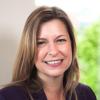
Jill Purdy
arrow_drop_down_circle
Jill Purdy
Professor, Milgard School of Business
Dr. Purdy studies how people influence and are influenced by the organizations and environments in which they operate. She examines how collaboration and entrepreneurship can generate innovative and sustainable solutions to challenging problems that span across the business, government, and nonprofit sectors. Her current research focuses on power in partnerships, building entrepreneurial ecosystems, and social and environmental innovation.
jpurdy@uw.edu

Jessi Quizar
arrow_drop_down_circle
Jessi Quizar
Assistant Professor, School of Urban Studies
My research centers two general areas: 1) race and urban land and resource struggles and 2) what Robin D.G. Kelly has called “freedom dreams” with regard to urban space—that is, the aspirations, theorizing, planning, and experimentation by BIPOC in the United States to claim and shape cities, neighborhoods, and communities. I am currently writing a book about the interaction of anti-Black racism and settler colonialism in the process of gentrification in Detroit. Things I am most interested in researching include: urban land grabs, anti-Blackness and settler colonialism, gentrification, policing and abolition, BIPOC grassroots community planning, and eviction defense.
jquizar@uw.edu

Emma Rose
arrow_drop_down_circle
Emma Rose
Associate Professor, School of Interdisciplinary Arts & Sciences
My research interests include participatory and human-centered design and developing methods to engage communities and vulnerable populations in the design process.
ejrose@uw.edu

Bara Safarova
arrow_drop_down_circle
Bara Safarova
Assistant Professor, School of Urban Studies
My research is on the intersection of spatial inequality and housing studies, focusing on spatial patterns of housing segregation. I combine geospatial analyses with qualitative methods. I am developing a new way of measuring segregation using the distribution of housing instead of demographic data and arguing that if segregation is built-into the physical environment, it should be measure that way to assist with development of effective policies. I serve on the executive board of LGBTQAI+ Allies interest group with the Association of Collegiate Schools of Planning advocating for inclusion of queer & trans people in cities. I teach service learning/community engaged urban design studios focusing on equity, climate action, and housing justice in partnerships with local public-sector and non-profit groups.
bsafar@uw.edu
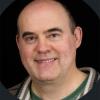
Derek Scheips
arrow_drop_down_circle
Derek Scheips
Part-Time Lecturer, Milgard School of Business
I'm a writer/editor with broad experience at advertising and consulting agencies who teaches part-time at Milgard. My research is anything that is relevant to business communications that I can pass onto undergraduate students or use as a practitioner. Recent and future teaching at UW Tacoma and Tacoma Community College: Managing People, Effective Managerial Communications, Digital and Social Media Marketing, English 101, English 102, College Success. Past teaching for Northeastern, University of Pennsylvania of many online and in-person introductory courses (Advertising, Account Planning, Public Relations, Branding). M.F.A. Columbia University. B.A. Swarthmore College.
dereks8@uw.edu

Peter Selkin
arrow_drop_down_circle
Peter Selkin
Associate Professor, School of Interdisciplinary Arts & Sciences
I read the big stories of the Earth told by small things. Specifically, I use the physical and chemical properties of micro- to nanometer-scale minerals as recorders of geological and environmental processes through deep time. I am particularly interested in what "weird" times in our planet's history - when major parts of Earth's systems were different from their present states, or when those systems changed significantly - can tell us about the present and future.
paselkin@uw.edu
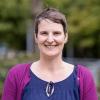
Claudia Sellmaier
arrow_drop_down_circle
Claudia Sellmaier
Associate Professor, School of Social Work & Criminal Justice
Dr. Sellmaier is an Associate Professor in the School of Social Work and Criminal Justice at the University of Washington Tacoma. Her research focuses on economic opportunities and work life fit for parents caring for children with disabilities, looking specifically at the impact of work, and community resources. Dr. Sellmaier also examines disability in social work education. She uses both quantitative and qualitative methods and conducts international research.
sellmaic@uw.edu
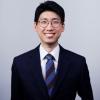
S. Joseph Shin
arrow_drop_down_circle
S. Joseph Shin
Assistant Professor, Milgard School of Business
The focus of Joseph's research is on the nexus of strategy and entrepreneurship. Joseph's research aims to enhance scholarly knowledge about the growth and scaling of high-growth nascent ventures in technology-based industries known as unicorn ventures. A unicorn venture is a private firm valued at more than one billion dollars. Using an extensive and novel longitudinal dataset and robust identification strategy, Joseph attempts to better understand the antecedents and consequences of ventures' high growth and fast-paced scaling.
seowon@uw.edu
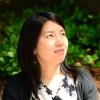
Huatong Sun
arrow_drop_down_circle
Huatong Sun
Professor, School of Interdisciplinary Arts & Sciences
Professor of Digital Media and Global Design, multi-award-winning book author of Global Social Media Design (2020) and Cross-Cultural Technology Design (2012) with Oxford University Press, she writes for public media including Fast Company and The Conversation, speaks at SXSW, STC, UXPA, CHI, and ATTW, and offers workshops at local SIGs and international conferences ranging from humanities to engineering. She has won multiple awards for her community-engaged projects with marginalized user communities, including the Jay R. Gould Award for Excellence in Teaching from the Society for Technical Communication and the Distinction in the Practice of Diversity and Inclusion Award from the Association for Business Communication.
htsun@uw.edu

Anne Taufen
arrow_drop_down_circle
Anne Taufen
Professor, School of Urban Studies
My work in critical social ecology looks at questions of co-production and disparity in urban governance, focusing on how institutional design and collaborative practices can further - or fail to support - resilient, adaptive, and healthy outcomes for communities and their members. In particular I am interested in 1) urban waterfronts and port districts, as sites of intense development and intersecting, territorial claims-making, with lasting material impacts on affected communities, sectors, and potential regional futures; and in 2) habits of practice that reinforce bias and impede growth in organizational life, perpetuating racial, gender, class, and ethnic disparities, often in spite of policy and discourse commitments intended to improve diversity, equity, and inclusion.
atw5@uw.edu
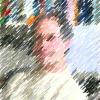
Josh Tenenberg
arrow_drop_down_circle
Josh Tenenberg
Professor, School of Engineering & Technology
My interdisciplinary research spans education, human-computer interaction, design research, workplace studies, semiotics, and technical communication. I have a Ph.D. in Computer Science, undertook advanced study at the Ostrom Workshop on Political Theory and Policy Analysis, Indiana University, and was visiting professor at the University of Victoria (Canada) and Indiana University. I served for six years as the founding Co-Editor-in-Chief of the ACM Transactions on Computing Education, have published several dozen papers in the human sciences, and am the author of Narratives of Qualitative Research: Making Praxis Visible (Routledge). I teach human-oriented aspects of computing at the undergraduate and graduate level.
jtenenbg@uw.edu
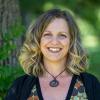
Riki Thompson
arrow_drop_down_circle
Riki Thompson
Associate Professor, School of Interdisciplinary Arts & Sciences
My research and teaching reflect an interest in the dynamic nature of language, visual imagery, and technology. I am particularly interested in how people negotiate digital spaces to connect with (and exclude) others.
rikitiki@uw.edu
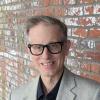
Grant Tietjen
arrow_drop_down_circle
Grant Tietjen
Associate Professor, School of Social Work & Criminal Justice
Dr. Tietjen, formerly Associate Professor and Assistant Program Director for the Masters of Science in Criminal Justice at St. Ambrose University in Davenport, Iowa, earned his Ph.D. from the Department of Sociology at the University of Nebraska-Lincoln in 2013. He has written, researched, and lectured on convict criminology, stigmatization, successful reintegration, mass incarceration, criminological theory, and pathways to correctional/postcorrectional education. He has published in multiple peer reviewed journals, book chapters, and academic encyclopedias; with multiple works in progress. Dr. Tietjen is a member of the American Society of Criminology and the Western Society of Criminology. He works with multiple carceral advocacy organizations, and mentors justice involved colleagues and students.
grantt5@uw.edu
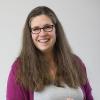
Barb Toews
arrow_drop_down_circle
Barb Toews
Associate Professor, School of Social Work & Criminal Justice
Still doing life: 22 lifers, 25 years later, co-authored by Howard Zehr and Barb Toews, features portraits and interviews with 22 men and women serving life without the possibility of parole at two points during their incarceration, 25 years apart. This decades-long look presents an opportunity to learn firsthand how these individuals have coped in prison, made sense of their lives, and grown as community members, as well as hear their perspectives on criminal justice policies and reform. Barb’s closing essay reflects on their words and experiences through a lens of trauma healing and restorative justice. The book invites readers to explore what it means to serve this sentence and consider the human and social consequences of such a policy.
btoews@uw.edu

Damiano Torre
arrow_drop_down_circle
Damiano Torre
Assistant Professor, School of Engineering & Technology
Dr. Damiano Torre's research spans Software Engineering, Cybersecurity, and Artificial Intelligence, with a focus on software engineering empirical studies, cybersecurity for AI-based systems, privacy-preserving machine learning, and AI for regulatory compliance. His work has been supported by organizations such as the U.S. Department of Defense, National Science Foundation, and the Department of Homeland Security. With over a decade of experience, Dr. Torre has co-authored numerous peer-reviewed publications and led research collaborations across North America and Europe. His recent projects include federated learning for IoT intrusion detection and advanced AI-driven cybersecurity techniques. He is a member of IEEE and ACM, Dr. Torre actively contributes to international conferences and journals in software engineering.
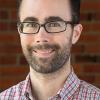
Erik R. Tou
arrow_drop_down_circle
Erik R. Tou
Associate Professor, School of Interdisciplinary Arts & Sciences
Erik Tou received a Ph.D. in mathematics from Dartmouth College in 2007, after earning an M.A. in mathematics from Dartmouth in 2004. He earned a B.A. in mathematics from Gustavus Adolphus College in 2002. Since 2005, he has served as director of the Euler Archive, a scholarly organization devoted to the collection, digitization, and translation of the works of 18th century Swiss mathematician Leonhard Euler. Dr. Tou's research interests include the history of quadratic forms, the mathematics of juggling, and number theory over imaginary quadratic fields. As an educator, he seeks to build equitable and just pedagogies in mathematics that encourage students to be lifelong learners.
etou@uw.edu

Jeff Walters
arrow_drop_down_circle
Jeff Walters
Assistant Professor, School of Engineering & Technology
Dr. Jeff Walters is a Civil Engineering Assistant Professor and co-founder of Open Water Systems (www.openwatersystems.com). He was an Assistant Professor at Universidad Diego Portales in Santiago, Chile from 2016-2018 and at George Fox University in Newberg, OR from 2018-2021. His research focus and passion center on developing rigorous, practical, and accessible ways to apply complexity science and systems thinking to tackle entrenched challenges inhibiting sustainable and equitable development worldwide. These research projects have resulted in articles published in high-impact science, technology, project management, and education journals targeting global infrastructure development. He also seeks to integrate theory and application of systems thinking and engineering for social justice in his engineering classes.
jpwalt@uw.edu
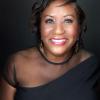
Carolyn West
arrow_drop_down_circle
Carolyn West
Professor, School of Interdisciplinary Arts & Sciences
Dr. Carolyn M. West is an award-winning author, international speaker, documentary filmmaker, and expert witness who investigates gender-based violence, with a special focus on domestic violence and sexual assault in the lives of Black women. She teaches courses on Family Violence and Sex Crimes and Sexual Violence. In 2021, she became the inaugural Resident Fellow of the Office of Community Partnerships. Dr. West has authored more than 100 academic publications and presented hundreds of keynote addresses, workshops, and presentations around the country. She has been interviewed by national media outlets, including The New York Times and CBS News. Dr. West is featured in the documentary Subjects of Desire, an examination of contemporary beauty images of Black women, available on STARZ and Hulu.
carwest@uw.edu
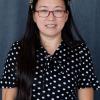
Juan Wu
arrow_drop_down_circle
Juan Wu
Assistant Professor, Milgard School of Business
My research interests span the areas of financial accounting and taxation, with an emphasis in the economic consequences of regulation. Using empirical archival research methods, I am particularly interested in investigating how exogenous shocks, such as tax policy and disclosure regulation, affect firms financial reporting behavior and other decision-making activities. Leveraging my analyst and pre-IPO working experience, I am also interested in capital market issues and the role of analysts.
juanw2@uw.edu

Anaid Yerena
arrow_drop_down_circle
Anaid Yerena
Associate Professor, School of Urban Studies
Anaid Yerena is an associate professor of Urban Studies at the University of Washington Tacoma. Her research interests include housing and community development in the U.S. and Mexico, advocacy organizations, social inequality, and urban governance. Her work investigates the factors influencing local housing policies and practices with a special interest in the impact of community organizations on public decision-making processes. As a secondary areas of research, she is interested in the emerging field of e-government and community engagement in the use and design of public spaces.
yerena@uw.edu
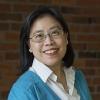
Ka Yee Yeung
arrow_drop_down_circle
Ka Yee Yeung
Professor, School of Engineering & Technology
My research focuses on the development of optimized methods and cloud-based software tools for the analyses of big biomedical data. My group has expertise in next generation sequencing, long read sequencing and imaging data. My research experience includes bioinformatics, machine learning, data science, systems biology, cancer genomics, and precision medicine. I am strongly committed to enhancing the diversity of the STEM workforce.
kayee@uw.edu
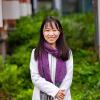
Weichao Yuwen
arrow_drop_down_circle
Weichao Yuwen
Associate Professor, School of Nursing & Healthcare Leadership
My scholarship focuses on examining the interplay of culture and health and developing technology-enabled solutions to promote health among marginalized individuals, families, and communities. I work with interdisciplinary and community partners to develop, test, and disseminate technology-enabled health solutions to increase access to tailored symptom self- and family-management support in people with chronic health conditions and their families. I also collaborate with computer scientists in exploring equitable and privacy-preserving machine learning approaches to use healthcare data for improving human health.
wyuwen@uw.edu
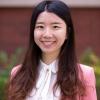
Luna Zhang
arrow_drop_down_circle
Luna Zhang
Associate Professor, Milgard School of Business
Dr. Luna Zhang is an Assistant Professor of Business Analytics. Her research interests include Consumer Behavior, Mobile Commerce, Platform Economy, Revenue Sharing, Business Analytics, Large Scale Data Analysis, and Information Systems and Operations Management Interface. Dr. Zhang's current project focuses on consumer search and purchase in mobile commerce and revenue sharing in the platform economy. She won the Distinguished Research Award at UW Tacoma in 2023 and the Best Paper Award at the prestigious academic conference, Conference on Information Systems & Technology (CIST) 2021. Her research has appeared in the premier academic journals, Management Science, Production and Operations Management, and Information & Management.
xyzhang5@uw.edu
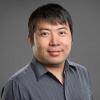
Dongfang Zhao
arrow_drop_down_circle
Dongfang Zhao
Assistant Professor, School of Engineering & Technology
Prof. Dongfang Zhao conducts research in multiple areas: databases, high-performance computing, artificial intelligence, and computer security. His publications have appeared in venues like SIGMOD, VLDB, ICDE, SC, TPDS, AAAI, KDD, PAMI, and NDSS. His research has been sponsored by NSF, DOE, Microsoft, Amazon, Google, and the Sloan Foundation. He received his Ph.D. in computer science from the Illinois Institute of Technology in Chicago and completed his Postdoctoral Fellowship at the University of Washington, Seattle.
dzhao@uw.edu
Lab Website: https://hpdic.github.io/
DBLP Profile: https://dblp.org/pid/25/5030-1.html
